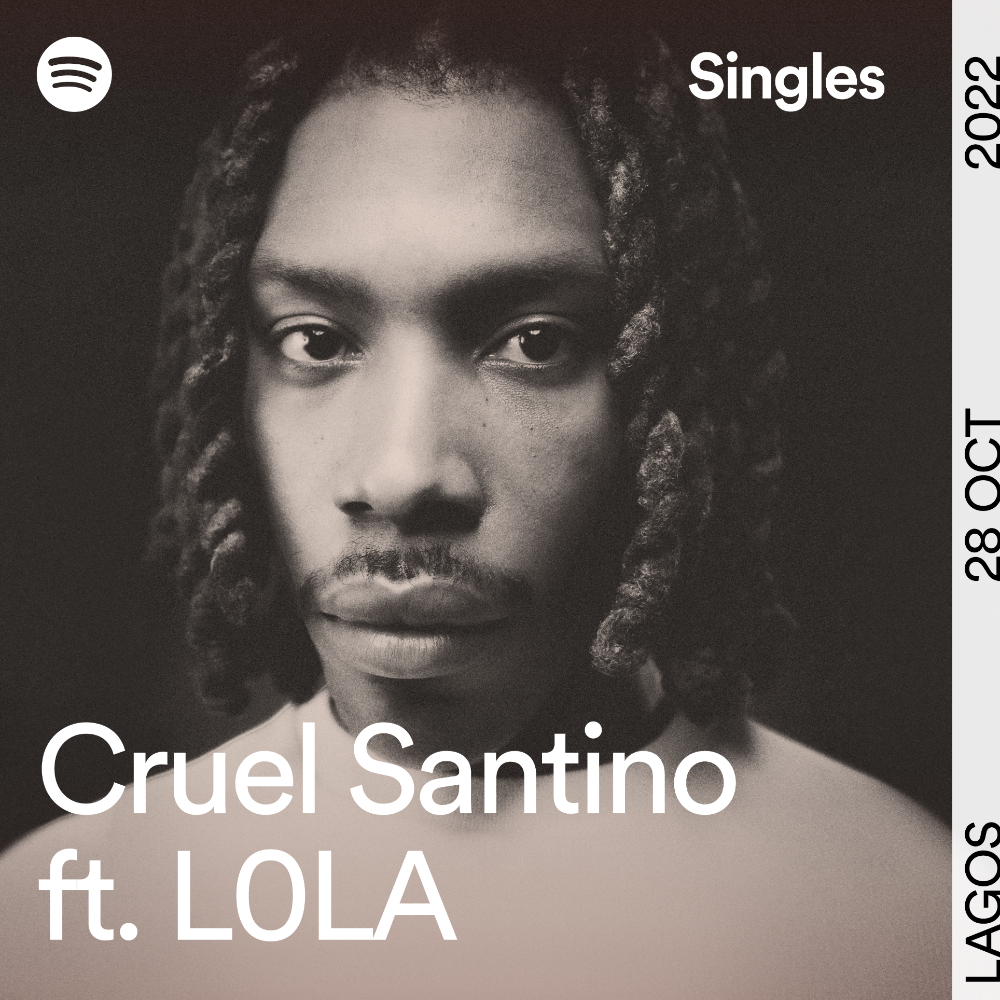
Best New Music: Cruel Santino Blends the Present & Past on Sauce Kid’s “OMOGE WA JO”
A spin on Sauce Kid's 2006 single

A spin on Sauce Kid's 2006 single
Experimentation has always been the motto for Cruel Santino’s music. As one of the leading voices of Nigeria’s Alté music scene, he has perfected his knack for often polarising yet irresistible tunes. His 2019 debut studio album ‘Mandy & The Jungle’ was a thrilling ride of hard-hitting records and the accompanying visuals drew inspiration from Nollywood horror movies. He followed it up with the genre-bending sophomore project ‘Subaru Boys: FINAL HEAVEN,’ whose roots stretch far into his deep-seated love for Japanese pop culture. Recently, he resorted to the online platform Twitch to connect with fans and other artists on gaming and music.
Four days ago, he released a new single. As part of Spotify’s Singles Cover, Cruel Santino’s L0LA-assisted “OMOGE WA JO” is a reinvention of Nigerian artist Sauce Kid’s 2006 song of the same title that featured the veteran Mike Okri. Spotify’s Singles Cover aims to celebrate Nigeria’s music history. Cruel Santino is the latest act to deliver reimagined renditions of modern-day Nigerian classics.
Produced by Tochi Bedford, Cruel Santino’s version turns Sauce Kid’s Hip-Hop number on its head, pulling the smooth rhythm in the direction of upbeat alt-rock with Disco undertones. Sharing his thoughts on the cover, Cruel Santino revealed that “The difference between ‘OMOGE WA JO,’ the Sinzu version and mine [is that] Sinzu’s one is more like laid back and chill. Mine is just freeform sprinkled with like Santi madness.”
Tochi Bedford’s production is the solid base for the magic that Cruel Santino and L0LA weave on “OMOGE WA JO.” The drums and twinkling keys carry a life of their own; they invoke a sensation that feels both nostalgic and avant-garde, in line with Santino’s psychedelic tendencies. A recent collaborator on Rihanna’s “Lift Me Up,” Tochi Bedford, who also contributed to Cruel Santino’s ‘Subaru Boys: FINAL HEAVEN,’ leads the line with exceptional production that makes L0LA and Santino’s work easier.
In Sauce Kid’s “OMOGE WA JO,” the rapper oozed cool confidence as he bragged about being a far-from-average spitter and about the magnetic pull he had over the ladies. Mike Okri’s suave hook carried an impressive modern sheen for an act that ruled Nigerian airwaves 80s with dance music. Sauce Kid went on to rebrand as Sinzu and put out the Davido-featuring hit track “Carolina” and Mike Okri’s “Time Na Money” remains one of the evergreen songs in the history of Nigerian music.
“Lyrics don’t guide me sometimes, it’s just the feeling and the melody, and I make out what I make from it,” Cruel Santino told Rolling Stone earlier in the year. His version of “OMOGE WA JO,” in every sense, is freeform as he cuts through different subject matters. L0LA, on her part, brings some form of narrative: she sings about how being with her lover inspires uncertainty in her. The divergences, though, are unified by L0LA’s soft refrains.
The accompanying video reiterates the energy on the track as Cruel Santino and L0LA engage in joyful camaraderie as they dance and dance and hop through a London street. The video joins Santino’s growing list of music videos he has directed through his Monster Boys outfit— “Gangsta Fear,” “Freaky,” “Rapid Fire,” “Raw Dinner,” “HEATING ROCKS,” Odunsi (The Engine)’s “Alté cruise” and GoldLink’s “U Say.”
“My favourite part of the original song is the whole song. I spent like two weeks cracking my head on it,” Cruel Santino said. “When people listen to my version, I want them to be happy that those times were there but sad that they might never get them back again.” Cruel Santino continues to tease new music while revealing that he has four projects in his ‘Subaru’ series in the works; with his version of “OMOGE WA JO,” he again highlights that his artistry will never wane as he remains on his path of reinvention and experimentation.
Listen to Cruel Santino’s “OMOGE WA JO” below.
Featured image credits/NATIVE

